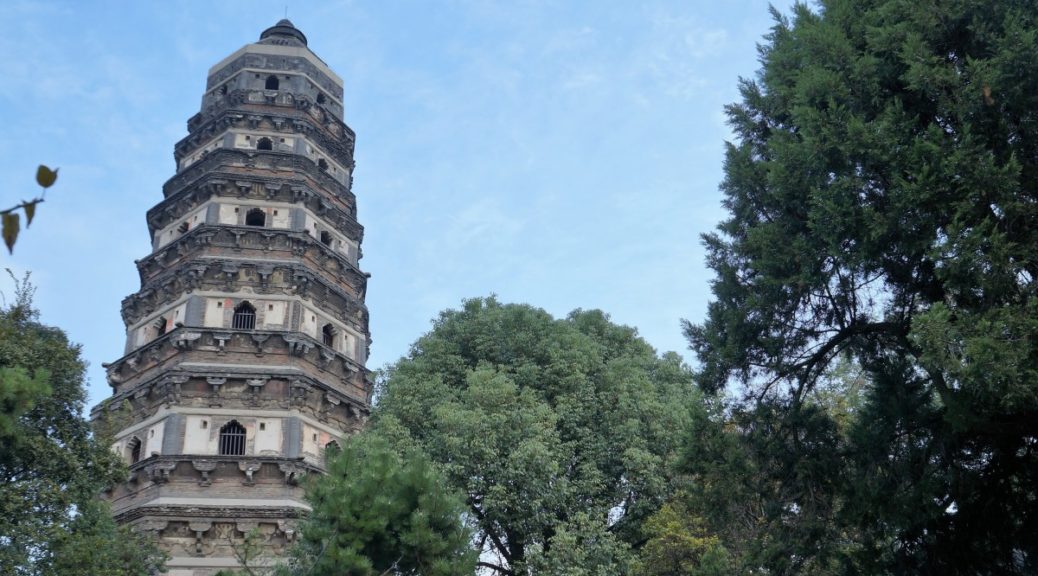By JoAnna Enos
When I was 11, I went abroad for the first time. I was part of an exchange program that paired students at my middle school in Portland, Oregon with students at a high school in Suzhou, China. I remember being very interested in other countries and cultures at the time. I loved learning about the ancient history of other countries and I loved the idea of going to palaces, temples, and other places that people had built and inhabited centuries ago. I knew going to China would be an amazing experience, especially since I would be going with friends and would be staying with a Chinese family, but at the time I didn’t realize just how influential a single trip to another country would be on my future interests, both personal and academic.
A few months after the Chinese students had visited Portland, my classmates and I traveled to China to stay with them. We flew into Shanghai and drove about two hours to Suzhou, where our host families lived. During the drive, I was amazed by what I saw just by looking out the window. I was expecting everything to look completely different than what I was used to. I thought China would look similar to how it’s described in old history textbooks and I wasn’t expecting to see so many things, like cars, clothes, buildings, restaurants, etc., that looked just like they did in my hometown.
The landscapes weren’t all that different either. Growing up in Portland, Oregon, large wooded areas and forests, rivers running through the center of a city, and mountain ranges not too far off in the distance were all things I was used to seeing on a daily basis, and those were things I was seeing in China too. Of course I knew that similar landscapes and geological features exist in many different places all over the world, but I was still expecting everything to be new.
Then, when I finally got to Suzhou and arrived at the home of my host family, I began to realize how cultures mix and match and adopt things from other cultures while still retaining some fundamental differences from each other. The apartment my host family lived in looked just like any apartment in the U.S., but what made it different was the culture of the people that lived in it. That was true for most of the things I saw and places I visited. Stripped down, they weren’t too different from the things I was used to, but then when you add in the factor of a completely different culture, things started to come alive and the new images were fascinating and exciting. I wanted to see as many things as possible and learn as much as I could about how things in China were different or similar to how they are in the U.S.
That interest in similarities and differences between cultures has stuck with me ever since and now it has a big impact on what I am interested in both in and outside of school. Outside of school, I love talking to people from other countries. I’ve had roommates and friends from all over the world and love talking to them about what they have observed in their time here and what they miss about their hometowns. I also worked with the American Language Institute here at USC as a one-on-one conversation partner and one of my favorite parts of every meeting is learning new things about the country my conversation partner is from.
In school I have loved learning other languages and have long been interested in how governments and societies work in other countries. As a political science major, I have been able to explore the latter in classes focused on international politics and law.
Going to another country and seeing how things are done similarly or differently, talking to international students at USC and learning about where they are from and what about the U.S. interest them, and learning about other political systems and societies in an academic setting have all contributed to my interest and desire to learn about other countries as much as possible and in any way I can. All of that has also allowed me to think more critically about how things are done in the U.S. in comparison to other countries and see that there isn’t always one best way to do something. Learning and adopting things from other countries can be very important and useful, but what makes countries special and interesting is how they develop and retain their culture despite the mixing and matching of elements from other countries that is very commonly occurring today.
Featured image from Pxhere
JoAnna is a USC graduate that studied Political Science. JoAnna now attends law school and hopes to become a civil rights lawyer in the future. During her time here at USC, JoAnna worked at the USC Alumni Association and was a member of several clubs and organizations on campus such as Room to Read and USC Penny Harvest. Originally from Portland, OR, JoAnna is an avid fan of the outdoors and likes to go running, hiking, and kayaking as often as possible. She also loves watching movies and going to concerts as often as possible.

